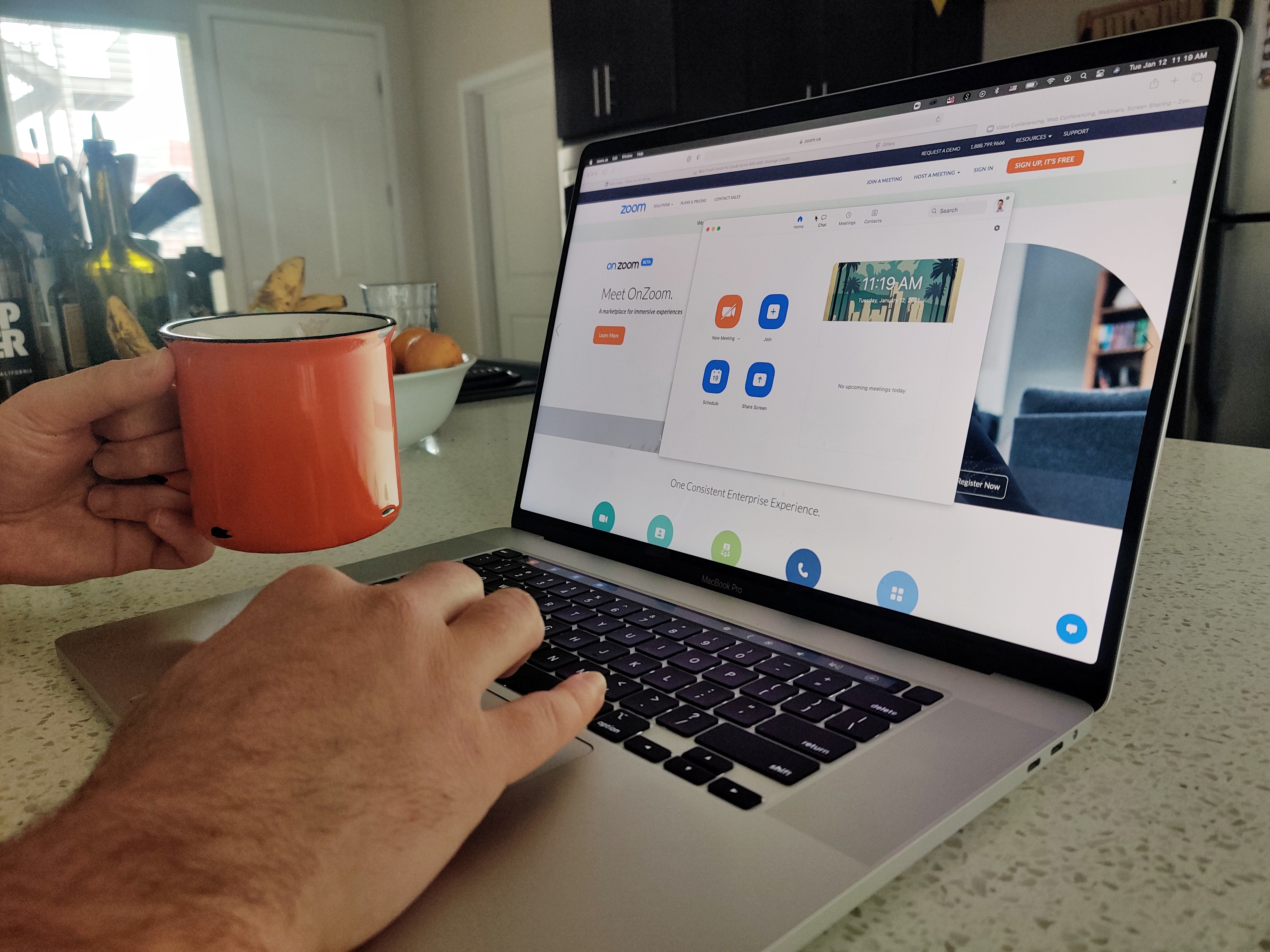Faculty discuss the challenge of conducting school online and the changes they’ve needed to make to be more accommodating
Over the last two quarters of instruction, professors have needed to make changes to their style of teaching as well as be especially observant of and responsive to their students’ needs.
While teaching over Zoom, Noah Guynn, a professor of French and comparative literature, has sometimes questioned the impact he has on his students.
“I think I reach my students, but I don’t always know.” Guynn said. “There have been specific moments where I’ve been really worried that I did the wrong thing or said the wrong thing. And it’s just not easy.”
Upon doing some research, Guynn initially decided that he would give his students the option to keep their camera off during class.
“Stanford in particular had a very informative website saying, ‘This is why requiring students to turn their cameras on is incredibly hard on students and especially students who are already vulnerable,’” Guynn said.
After a quarter of teaching this way and noticing that many students chose to keep their cameras off, however, Guynn decided to request that students turn their cameras on to increase engagement and help them adjust to this style of learning.
“My guess is that students will get more comfortable with it if they are asked to do it,” Guynn said. “And that they’ll become more comfortable with one another as a result. One thing I noticed for sure is that students who are visible are definitely performing better academically.”
Although Brian Trainor, a psychology professor, wants students to turn their cameras on, he hopes that by not requesting this of them, they will feel more at ease.
“I am teaching a much smaller class this quarter, and I’m hoping that more people will have cameras on, at least when we’re interacting,” Trainor said. “And so I know that’s a touchy thing, whether people have cameras on. So I’m mostly focusing on trying to make people feel comfortable.”
Guynn speculated that some students decide to keep their cameras off because they don’t feel adequately prepared for class, but he values open communication with his students.
“I’m happier knowing that students trust me to say, ‘I didn’t have time, and so I’m not prepared, but I want to be here to benefit from the conversation,’” Guynn said. “I’d rather know that they’re not prepared so that I can anticipate what needs to be done and […] know this is not the person to call on.”
According to Guynn, when he receives emails from students giving reasons for not being able to turn work in on time, it’s often clear to him that the reasons are fabricated.
“It’s often painfully obvious, and I never say anything because even contrived excuses more often than not are based on something real that the student doesn’t really want to share,” Guynn said.
According to Trainor, when he received emails from students giving reasons for not being able to turn in work, he was forgiving because he recognizes the complexity of many students’ lives.
“Basically this quarter if they told me something, I just took their word for it,” Trainor said. “I’ve seen a lot of crazy stuff that happens to students, like so many of our students are first in their family to go to college, working jobs, taking care of their parents or siblings.”
In an attempt to be more available to students, Guynn gave out his home number at the beginning of Fall Quarter, which he later found to be a mistake.
“During [COVID-19], certain kinds of rules and boundaries are actually more important than usual because [it’s] very reassuring that there’s a certain expectation,” Guynn said.
According to Tobias Warner, a professor of French and Italian, something he’s done to be more accommodating in general, but especially for international students, has been breaking longer lectures into 10-15 minute segments with corresponding quizzes.
“It’s a little bit easier in the sense that I’ve chosen to just do shorter lecture videos and online quizzes and have those be the delivery of some of the course content so students can really, no matter where they are, engage with the material,” Warner said.
Trainor also decided to make his lectures shorter with more concentrated material.
“This quarter I’m just trying to [focus on] cutting back on content,” Trainor said. “Doing less material and making it better.”
Guynn feels that not every decision he made over the course of this last quarter was beneficial to his students, one of them being holding class on Election Day.
“I felt terrible,” Guynn said. “It was the biggest failure of the quarter for me on Election Day.”
He initially believed that it was in his students’ best interest for him to continue with instruction as he normally would on Election Day, but later sensed that it caused them an unnecessary burden.
“They just looked so overwhelmed and upset and just […] emotionally and intellectually and probably physically exhausted,” Guynn said. “I apologized in the next class and just said, I’m really sorry. I thought that that was the right thing to do, and it clearly wasn’t.”
Warner noted that professors have seen the effort students are putting into their educations despite how challenging it can be.
“Faculty are really impressed with how hard students have been working in often really challenging circumstances for them to engage in and be present,” Warner said. “It’s certainly challenging for us to teach you all as well.”
Warner believes that students and professors are doing everything they can to maintain connections despite conducting school and learning remotely.
“We’re all in this situation for some time longer, it seems, so we’re all doing our best, faculty and students, to try to find ways to connect and keep that teacher-student connection going,” Warner said. “That’s why we’re all here—to learn and to share that passion for the material.”
Written by: Lyra Farrell — features@theaggie.org





